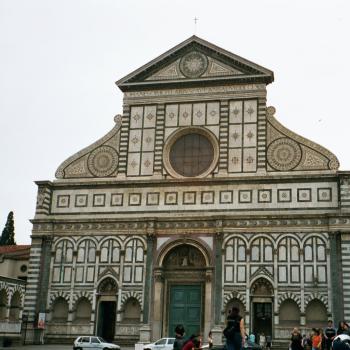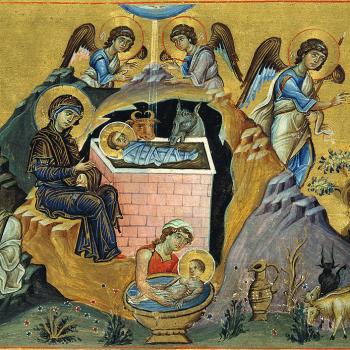 On the final Sunday of January, 2014, when Pope Francis, with the help of children, released two doves representing peace into the air, those two doves were immediately attacked by a hooded crow and a yellow legged gull. Pope Francis was continuing a tradition when he had children from war torn countries brought to the Vatican to release the doves with him. He wanted to show that despite the war and conflict going on, there is a reason for hope. Because of the way the doves were attacked (and not for the first time), Pope Francis decided to change the tradition, and has begun releasing balloons instead to show the sign of peace.
On the final Sunday of January, 2014, when Pope Francis, with the help of children, released two doves representing peace into the air, those two doves were immediately attacked by a hooded crow and a yellow legged gull. Pope Francis was continuing a tradition when he had children from war torn countries brought to the Vatican to release the doves with him. He wanted to show that despite the war and conflict going on, there is a reason for hope. Because of the way the doves were attacked (and not for the first time), Pope Francis decided to change the tradition, and has begun releasing balloons instead to show the sign of peace.
While, scientifically, the explanation for the attack was simple: the doves, being bred to be pure white, were easily spotted and so easily attacked upon release, it is hard not to see other lessons which can be learned from this event, such as being a builder of peace, seeking mercy and justice, makes one appear to be easy prey for those seeking positions of power and authority in the world. Nonetheless, what happened with the birds can be taken symbolically. Even if one does not look for omens and try to read too much into events which can be easily explained with simple scientific explanations, we can still understand how and why people would read this event as being symbolic, especially given the state of the Catholic Church which Pope Francis inherited. Not only has the deep, hidden secrets of sexual abuse and its cover-up the world over been revealed during his reign, the Pope has also had to deal with the rise of a legalistic ultra-right wing within the church, a right-wing which is trying to take power into its own hands, a wing which knows nothing of the mercy, compassion, and peace which Christ desires to give to the church. When the Pope grants sinners mercy, through the authority given to him by Christ, he finds himself assaulted, just like the doves of peace were assaulted, from his would-be enemies within the church, seeking to use every opportunity to hinder the Pope and make him resign. The media, likewise, has not helped the Pope; because the media does not understand Catholic teaching, reporters often misrepresent both what the Pope has said and how what he says relates to what previous Popes have said and done. This conflict the Pope finds himself facing within the church to be sure, is not new: mercy and grace have been hated by rigorists since the earliest times of the church; many schisms and heresies have risen because legalists do not understand the spirit of peace and grace. Indeed, contemporary critics of the Pope often sound like the Novatians from the past, but with one key difference: Francis’s opponents were ready, from the time he was elevated to the pontificate, to attack him because they knew his stand with Catholic Social Doctrine was going to undermine the ideologies which they have long promoted as being Catholic despite contradicting Catholic doctrine (the rise of the alt-right is only the outcome of the culture war being fought in many first-world countries).
The Pope stands with a legacy which promotes the poor, which promotes the care for the earth, which promotes mercy to sinners, while his critics, like all rigorists, contests that such mercy indicates laxity in relation to sin and decry the Pope as a “Marxist” because of his Christian concern for the poor and needy.
For those who view the Pope to be an enemy, it should not be surprising that the rhetoric they use against him sounds similar to, and imitates much of what was said by previous anti-Catholic rhetoricians, such as found in the writings of Martin Luther, Ian Paisley and Jack Chick: the same over-simplification, the same scapegoating, the same distortion and lies, can be found being employed by all of them to discourage the faithful so as to direct them away from Christ and the teachings of the church and towards earthly saviors who promise undue utopia if their unseemly ideologies are followed. They say, for example, that the church is in crisis because it is too merciful, and so it must put an end to such mercy. The church is in crisis because it criticizes the rich and powerful: it should seek to get in the good graces of those in power, so then it can thrive once again. The church is in crisis because the Pope teaches something different from what St. Augustine and St. Thomas Aquinas taught (though of course, Aquinas consistently differed from Augustine, and neither of them would find it valid to criticize the Pope in the fashion his critics engage), and so must legalistically follow the Summa Theologica if it wants to keep to its mission. The church is in crisis because the Pope is not clear (who cares if Jesus himself often spoke in parables which stumped his listeners), and so he must state things simply based upon carefully chosen statements from approved sources which are said to be “clear.”[1] The crisis his right-wing critics try to make is a manufactured crisis, and the critics not only distort what Pope Francis says and does, they distort the past with false visions of what the church was like and what they think it teaches. This is not new; the thing is, it is currently effective because of several decades of a false triumphalistic vision which was issued forth and accepted as helpful by the church, without looking into and overturning the right-wing ideology which lay behind such triumphalism. Catechesis has been poor, for it has been gravely imbalanced, in favor for the notions that the right-wing desired, removing everything else from view, especially from those sources which ordinary Catholic go to for spiritual edification (like various television and radio stations which now create panels to denounce the Pope).
Pope Francis, like every Pope, is not perfect. He needs our prayers. He makes mistakes. But he is also working to realign the church, to deal with the crises he has been handed upon becoming Pope. The crises are deeply rooted within the church and will not be easily uprooted. People need to be patient as he discerns what is going on and seeks, with prudence, solutions to the crises as hand. It might seem slow, especially in the day of the internet and instant gratification, but when trying to properly deal with any crisis, there will be no instant gratification possible. There needs to be changes. They need to be done in wisdom. Doing things just to do things, for the sake of optics, rarely solves problems: they just let the problems fester as people feel that, through them, the crisis has been solved when nothing substantial has to be done. Now, to be sure, the Pope should listen to those affected by the various crises in the church, hear the problems and harm which has been done, and hear even what they think can and should be done. He should listen to those who have ideas. This is not to say the ideas will be good or should be followed: but he should listen, and work to produce the best plan from all that he can learn from others. But for that to be done, that again, will take time. He can and should do things initially, to help deal with gross problems, but then continue to further investigate and deal with the issues at hand, which might mean changing what he instituted if they end up being ineffective or making things worse. What is important is to realize initial steps are just that, and should not be seen as being more than that: they can indeed end up being missteps. But to attack him, thanks to undue expectations of what is possible, with hope that things will be instantly fixed, is to be unreasonable, and it is often from those who are being unreasonable with him and attacking him for ideological purposes that we find this kind of criticism the strongest.
[IMG=Dove [CC0 Public Domain] via publicdomainpictures.net]
[1] Also, the Pope is not so unclear as they claim. Any text, any speech, can be made to seem unclear, especially quotes are taken out of context. Likewise, many commentators who are upset with the legitimate positions the Pope takes, like to perpetuate this notion he is unclear, when the reality is that they are the ones who lack clarity in relation to the teachings of the church.
Stay in touch! Like A Little Bit of Nothing on Facebook

















